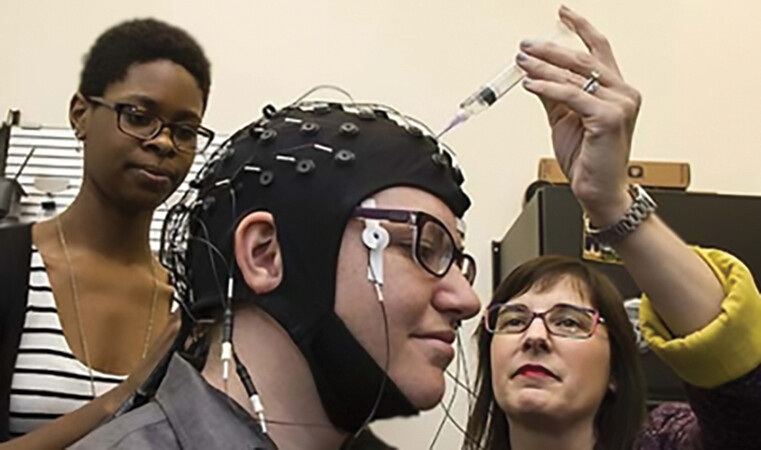Learning Goal
Summarize the four ethical principles that guide psychologists in their research.
Learning Goal
Summarize the four ethical principles that guide psychologists in their research.

FIGURE 1.15 Psychology Research Has Not Always Been Concerned With the Welfare of Participants
Early psychology research showed that an infant can be taught to fear animals. But research that shows disregard for participants’ well-being is no longer acceptable.
What would you say if you learned that past research has explored whether it is possible to make an infant fear certain animals? If you reacted with a sense of surprise or disgust, then you are not alone. Yet this research was actually conducted by psychologist John Watson and his colleagues, who trained an 11-month-old infant, now called “Little Albert,” to fear a white rat by making a loud clanging sound whenever the rat was presented to him (Watson & Rayner, 1920). As a result of the research, Little Albert began to whimper and cringe whenever he saw the rat. He also began to show fear responses to other animals, such as rabbits, and other objects (Figure 1.15). Unfortunately, the pursuit of science in this case came at the expense of Little Albert’s well-being. However, psychology as a field has learned from some mistakes it made in the past.
Psychologists Today Follow Four Ethical Principles Because of unfortunate research practices in the past, today’s psychologists adhere to rigorous professional ethics, which are accepted standards of right and wrong that guide people’s behavior. Ethical principles guide how psychologists should go about conducting research, ensuring that they proceed in ways that protect their participants’ physical and emotional well-being. Today psychologists are required to fully consider the ethical issues involved in their studies (Youngpeter, 2008).
The guardians of ethics guidelines at schools and other institutions where research is conducted are institutional review boards (IRBs), which consist of administrators, legal advisers, trained scholars, and members of the community. The IRB reviews all proposed research to ensure that it meets four ethical standards:

FIGURE 1.16 Psychology Research Must Meet Ethical Standards
This person is volunteering in psychological research that measures his brain processes as he completes a specific task. If you also volunteer to participate in psychological research, you can rest assured that an IRB has reviewed and approved the study as meeting rigorous ethical standards.
You can experience ethical psychological research directly if you volunteer to participate in studies (Figure 1.16). By participating in research, you contribute to the scientific research that shows how people think, feel, and act, and you can rest easy knowing that you will be protected by rigorous ethical guidelines.
LEARNING GOAL CHECK: REVIEW